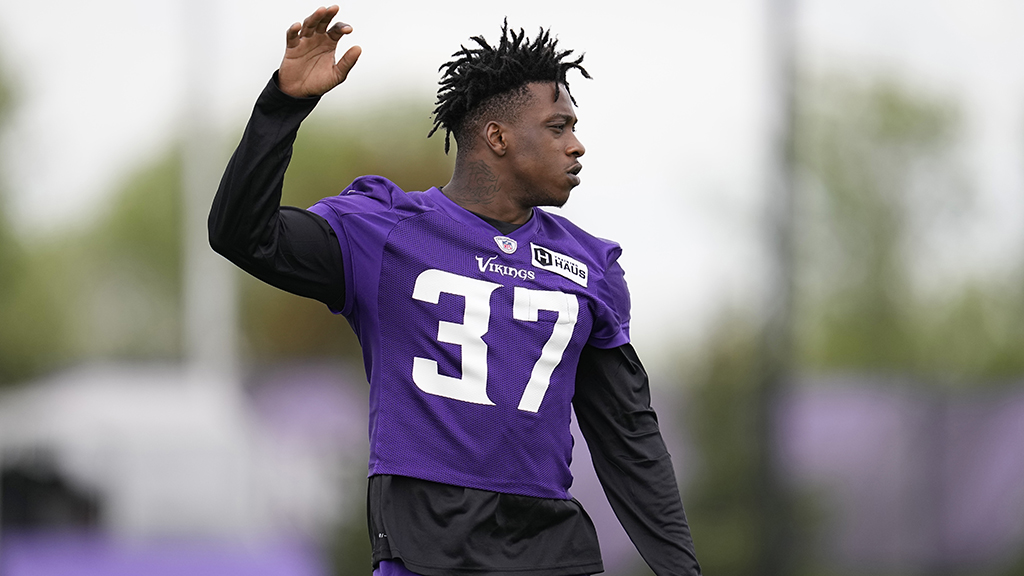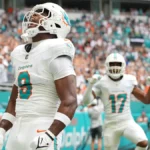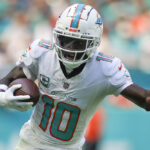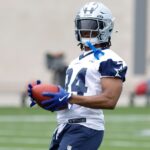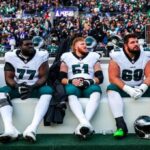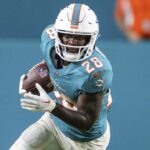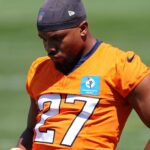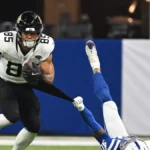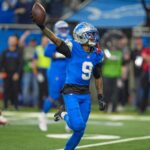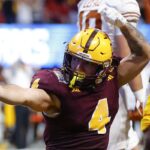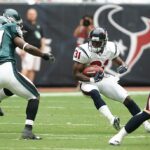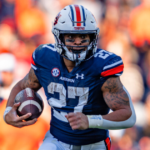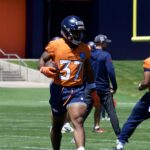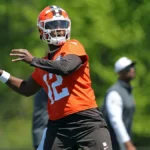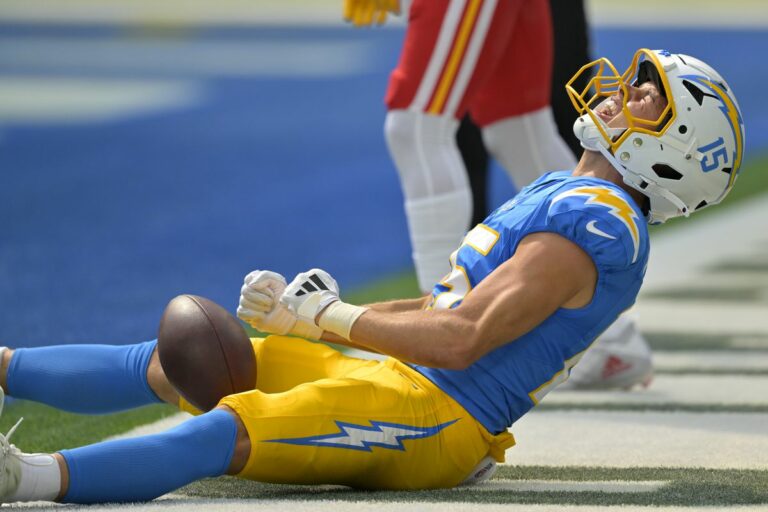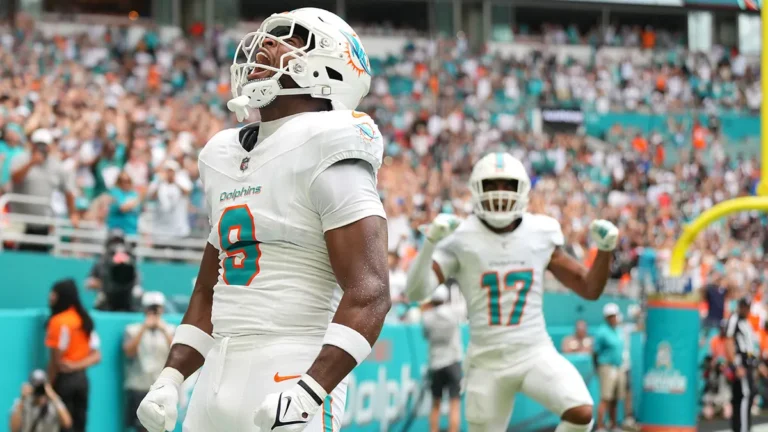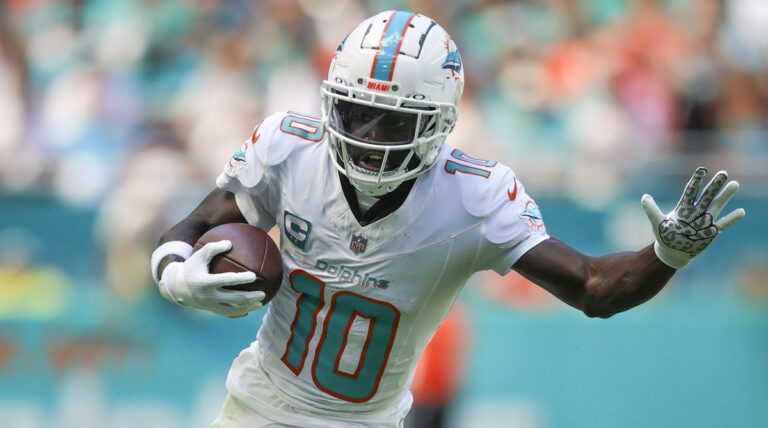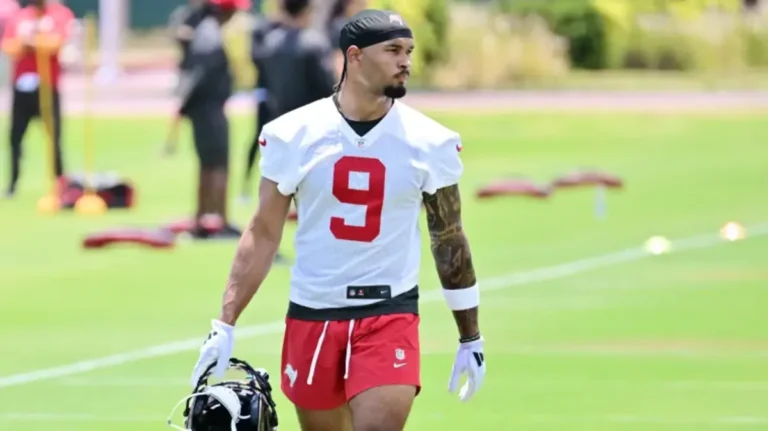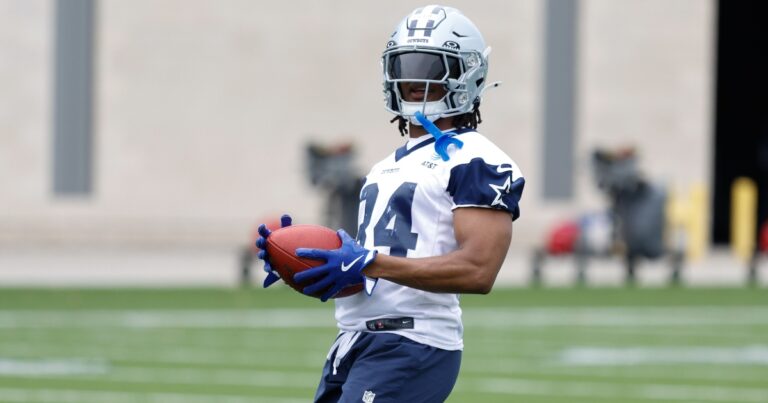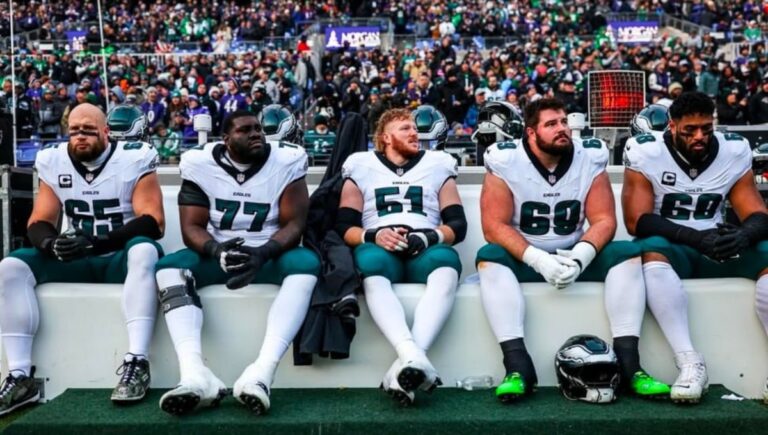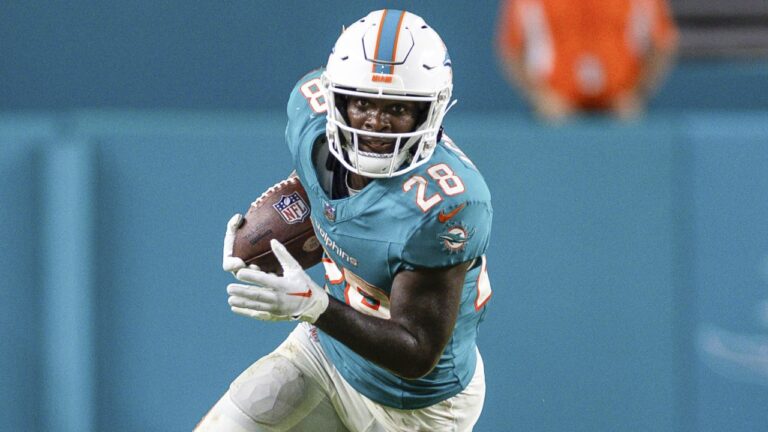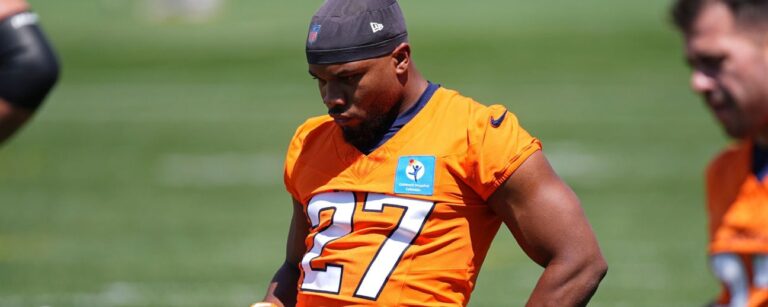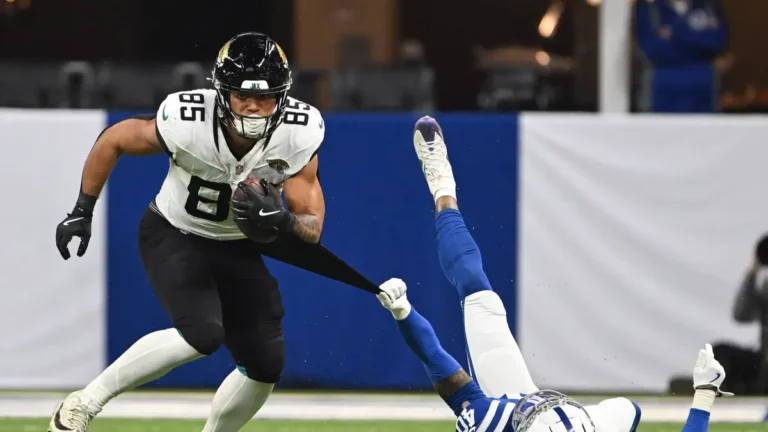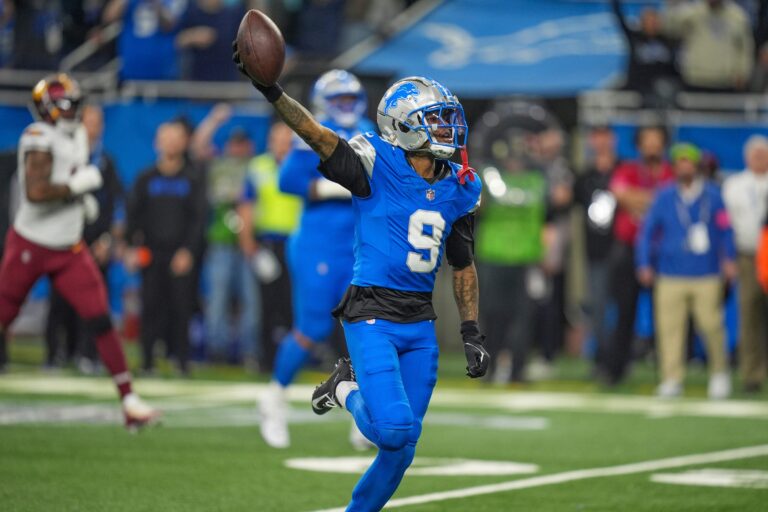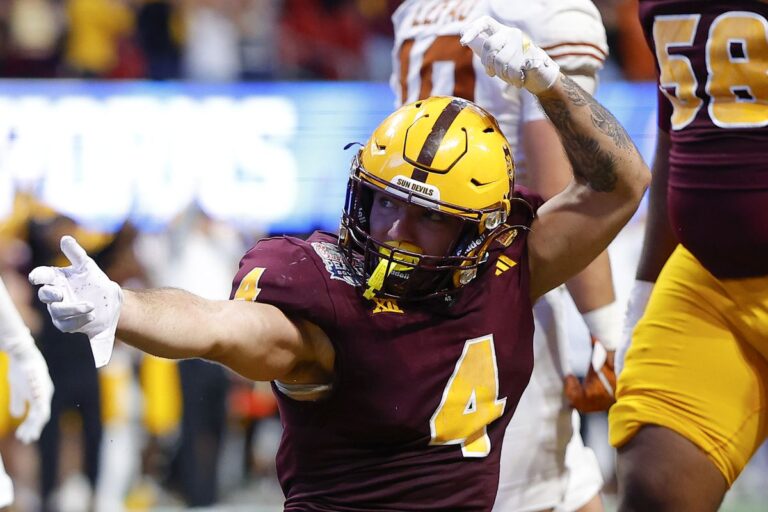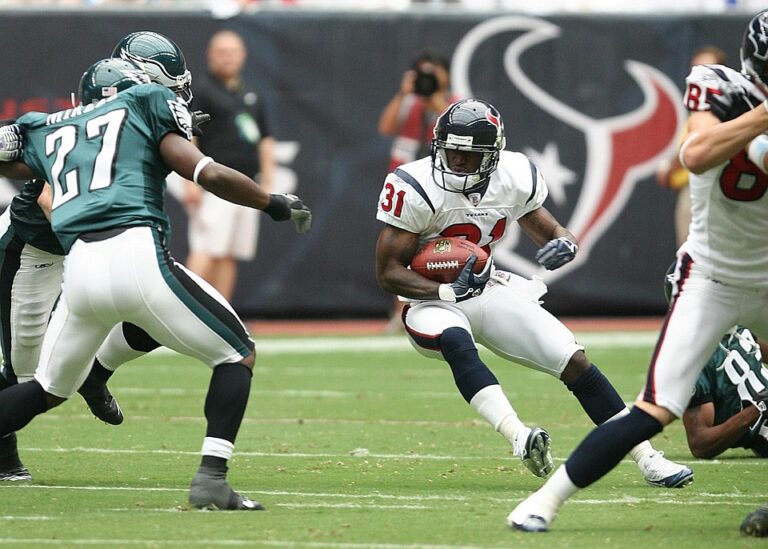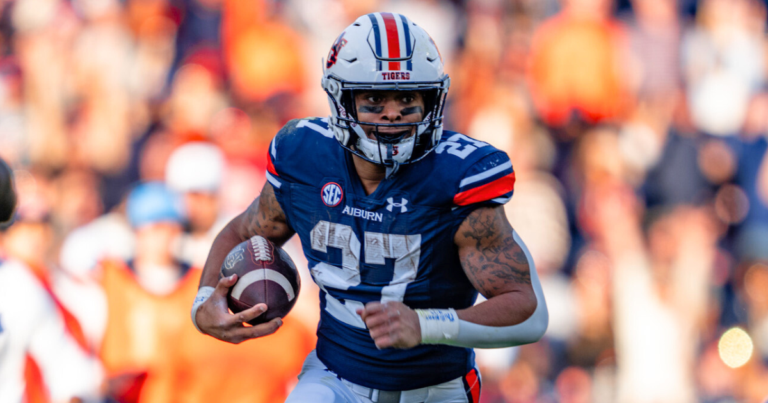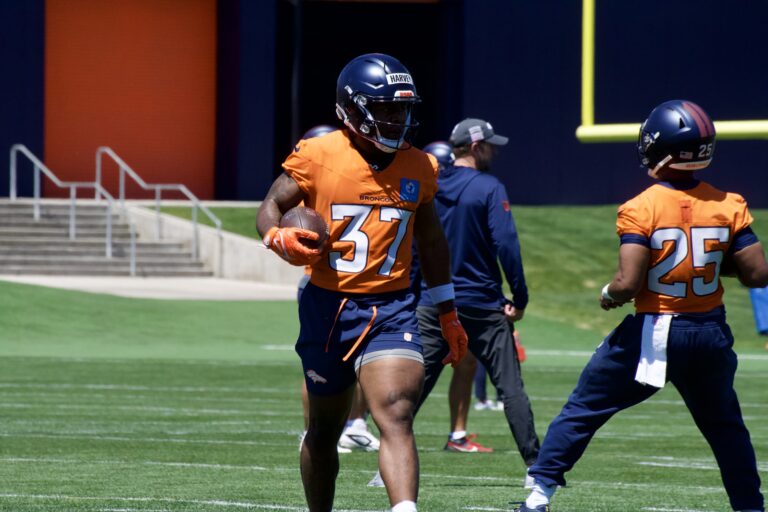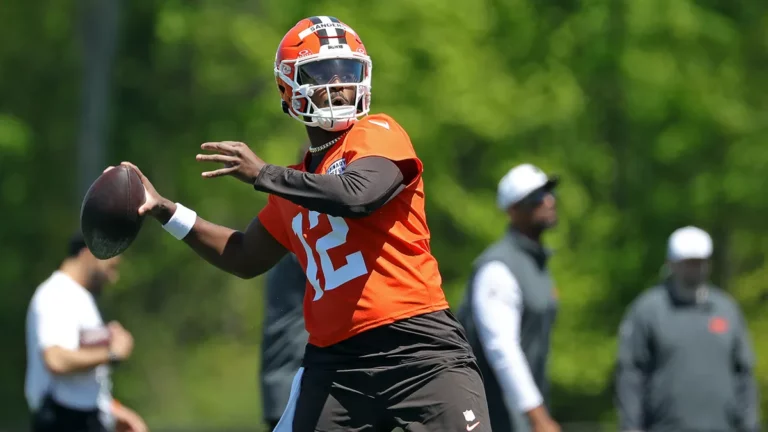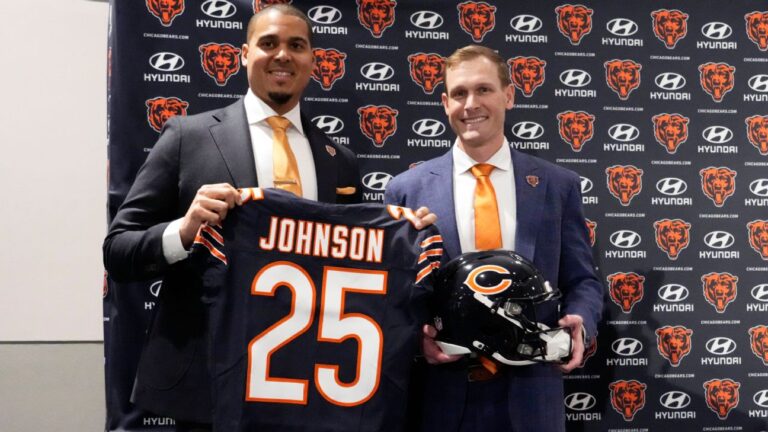DeWayne McBride‘s fumbling concerns were arguably the biggest factor in his fall in the 2023 NFL Draft, falling to the seventh round, lower than the grades most draft analysts had on him.
McBride finished second, only to Air Force’s Brad Roberts, in total rushing yards in the FBS (1,702), and only trailed Bijan Robinson in PFF’s Elusive Rating with running backs with at least 180 carries last season. So, why such a fall in the draft? That fact he played at in non-power 5 conference at UAB, and saw next to no receiving work (10 targets in three years) were certainly factors, to go along with the fumblitis.
But how worried should we be about it? Are fumbling issues a career killer? Do players entering the league with the issue improve? Or, does it stay with them?
Some claim McBride fumbled 10 times over his college career, some 11. I’ll trust Pro Football Focus, who has him at nine fumbles over 437 carries in his final two years, a 2.06-percent fumble rate, and bottom of the 2022 running back draft class. So let’s dive into players since 2015 who had at least some resemblance of an NFL career, who entered the league with at least similar fumbling concerns, and see how they fared.

(Like McBride, only the final two years were included for a few players on this table, to highlight the similar time frame in which their fumbling issues occurred)
A GENERAL IMPROVEMENT
Of the 12 qualifying players, only Alex Collins got worse, and even that was by .04 percentage points. A few guys got dramatically better, including Miles Sanders (2.9 to 1.26) and the man, myth, and legend Marlon Mack (2.06 to 4.9). It’s hard to say if Miles’ career trajectory would have stayed the same if his college fumble rate was the same in the pros as it was in college, same with Jeff Wilson. Oddly enough, Wilson’s career fumbles and carries are exactly the same numbers as McBride’s college career, and I don’t hear Wilson’s name becoming synonymous with fumbilitis.
THE CURIOUS CASE OF MELVIN GORDON
We can’t possibly talk about fumbling issues hampering a player’s career without bringing up Gordon’s well-known problems with it.
Gordon’s 2.2-percent rate was the third-worst of the 12 qualifying backs here, but it didn’t stop the Chargers from drafting him 15th overall in 2015. He rewarded them in his rookie season by fumbling seven times in 184 carries, a whopping 3.8 percent.
DeWayne would never…
Maybe Gordon would have been out of the league a long time ago had he kept up, but fortunately he didn’t have to find out, after reeling it into just 0.54 percent the next three years. However, the next three years after that would see it rise again to 1.9 percent.
And then, in 2022, Gordon fumbled five times in 90 carries for a whopping 5.6 percent fumble rate. That’s what it took, that’s how bad it had to get before a team showed a player the door over fumbling issues — even after the team lost its star rookie running back.
TO BE FAIR
It may be unfair, but generally, it’s a decent bet to assume that players with better draft capital have a larger margin for error than those with less. Melvin Gordon was a first-round pick and DeWayne McBride fell to the seventh.
Four backs drafted in the seventh round over the last decade have had notable NFL careers: Isiah Pacheco, Justin Jackson, Myles Gaskin, and Chris Carson. None of them had McBride-level fumbling concerns. Neither did undrafted running backs James Robinson nor Arian Foster. Maybe they didn’t because if they did, their draft capital wouldn’t have left enough margin of error to give them any breathing room in that regard, and the ones with the fumbilitis, and similar draft capital, fell off rosters quickly. Of the backs listed on the table provided above, only Jeff Wilson (undrafted) had lower draft capital than McBride, so Wilson feels like an outlier.
Regardless, McBride doesn’t have the draft capital to wait to impress and needs to show out sooner rather than later to convince the Vikings that they won’t need to prioritize the position in the next one or two years, keeping him buried on the depth chart.
For better or worse, his draft capital will remain a concern for his chances of becoming a viable fantasy asset. His lack of receiving work in college will too, though there’s room for hope there. But a 2.06 percent fumble rate? Nah.
There are a lot worse things to trade a third-round pick for in your dynasty league right now than DeWayne McBride. He has as much of a path to a lead gig with Minnesota in 2024 as Alexander Mattison and Ty Chandler do and if he gets it, you’re too late to get him.
DeWayne McBride is getting first team reps with Mattison banged up.
— Vikings Central (@VikesCentral) August 1, 2023
McBride is currently RB49, 168th overall, in my Superflex Dynasty Rankings.
